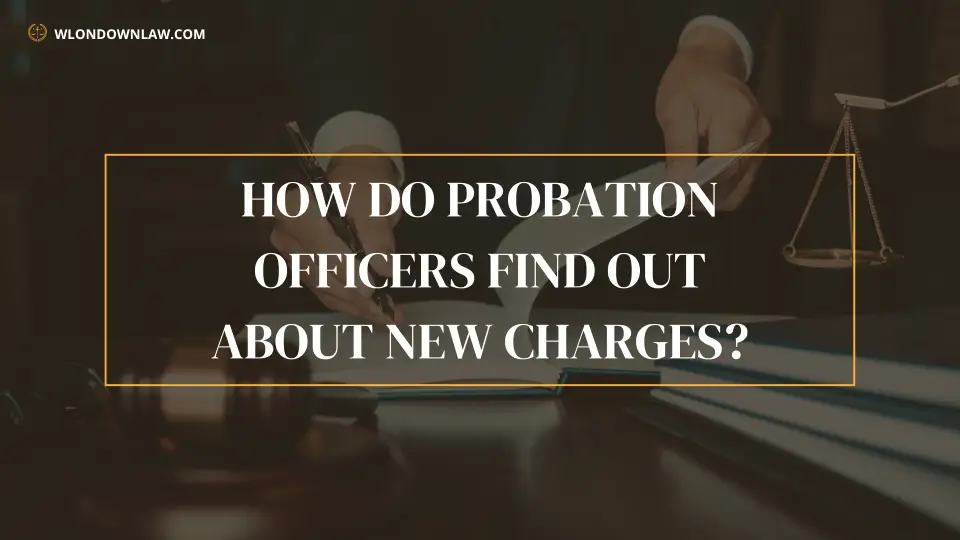There is often confusion about what information will appear when it comes to background checks. One common question is, does a no contest plea appear on a background check?
A no contest plea, also known as nolo contendere, is a legal term used when a person does not admit guilt but does not contest the charges. This plea may be used in criminal cases, including traffic violations and misdemeanours.
Whether a no contest plea will show up on a background check can depend on the specific circumstances and the policies of the background check provider. It’s important to understand how this plea may impact your background check and seek legal advice. Let’s see in detail: does no contest plea appear on background checks?
Does A No Contest Plea Show Up On Background Checks?
A no contest plea, also known as nolo contendere, may or may not show up on a background check, depending on the specific circumstances and the type of check being conducted.
According to the Legal Information Institute at Cornell Law School, a no contest plea is a plea in which the defendant neither admits nor disputes the charges against them but agrees to accept the punishment. In some cases, a no contest plea may not be considered a conviction and, therefore, may not appear on a background check.
However, in other instances, it may still appear on a criminal background check, as it is still a formal resolution of the charges. It is important to consult with a legal professional to understand the potential implications of a no contest plea on one’s background check.
What Is a No Contest Plea?
A no contest plea, also known as “nolo contendere,” is a type of plea in criminal court where the defendant does not admit guilt but does not contest the charges brought against them.
This plea is often used as a strategic decision to avoid admitting guilt but still accept the charges’ consequences. By entering a no contest plea, the defendant can avoid a trial and potentially receive a more favourable outcome in terms of sentencing.
However, it is important to note that a no contest plea can still result in a conviction and be used against the defendant in civil court cases. Overall, a no contest plea provides a middle ground for defendants who do not want to admit guilt but do not want to contest the charges in a trial.
Is Nolo Contendere the Same as No Contest?
Yes, Nolo Contendere and No-Contest are the same thing in the legal world. Both terms indicate that the defendant is not contesting the charges against them. This means that the defendant does not admit guilt but does not deny the charges.
By entering a plea of nolo contendere or no contest, the defendant typically accepts the punishment without admitting guilt. This plea may be used in various cases, such as criminal trials or civil lawsuits. In practical terms, the outcome for the defendant often resembles that of a guilty plea, as the court will typically impose the consequences of the charges. These phrases may vary by jurisdiction, but, they are interchangeable in their meaning and impact.
Why Does A No Contest Plea Appear On a Background Check?
A no-contest plea may appear on a background check because it is considered an admission of guilt, even though the defendant does not admit to committing the crime.
This type of plea is often utilized when the defendant may be facing civil litigation, as it does not carry the same admission of guilt as a plead guilty. However, it still goes on the defendant’s record and may appear on a background check.
Employers and other parties conducting background checks may view a no contest plea as a potential red flag, as it suggests that the individual may have been involved in criminal activity. As a result, a no contest plea can impact a person’s ability to secure employment or pursue certain opportunities.
Difference Between Guilty and No Contest Pleas
In the legal system, a guilty plea is an admission of wrongdoing. In contrast, a no contest plea, also known as nolo contendere, is not an admission of guilt but an acknowledgement that there is enough evidence for a conviction.
When a defendant pleads guilty, they admit their guilt and accept the consequences of their actions. On the other hand, a no contest plea allows the defendant to avoid the admission of guilt, which can be advantageous in civil cases where the admission of guilt could be used against them.
Both pleas result in a conviction, but the implications and potential consequences can vary. It’s important for individuals involved in legal proceedings to fully understand the differences between these two types of pleas before deciding.
What Are the Pros of Pleading No Contest?
One of the main pros of pleading no contest is that it allows the defendant to avoid admitting guilt. This can be beneficial in certain situations where the defendant wants to avoid the stigma of a criminal conviction.
Additionally, pleading no contest can often result in a more lenient sentence than pleading guilty. This can be especially advantageous in cases where the evidence against the defendant is strong, as it may lead to a more favourable outcome.
Furthermore, pleading no contest can less impact future civil proceedings, as it may not be used as an admission of guilt in subsequent lawsuits. Overall, pleading no contest can offer a strategic advantage for defendants in certain circumstances.
What Are the Cons of Pleading No Contest?
The cons of pleading no contest include that a plea of no contest can still result in a conviction, which may have negative consequences, such as a criminal record or difficulties finding employment. Additionally, pleading no contest may still result in the imposition of fines, court fees, and other penalties.
Furthermore, while a plea of no contest cannot be used as an admission of guilt in a civil case, the underlying facts of the criminal case can still be used as evidence.
This means that a plea of no contest may still have implications in civil matters. Lastly, pleading no contest may limit the ability to appeal the conviction, as the defendant has waived their right to contest the charges.
DUI is a criminal offense.
Driving under the influence (DUI) is a serious criminal offense that can have severe legal and personal consequences. DUI laws are in place to protect the safety of all individuals on the road, as alcohol or drug-impaired driving has been shown to increase the risk of accidents and fatalities significantly.
In most jurisdictions, a DUI conviction can result in fines, license suspension, mandatory attendance at alcohol education or treatment programs, and even jail time. Furthermore, having a DUI on your record can have long-term repercussions, such as difficulty finding employment or obtaining auto insurance at affordable rates.
It is imperative for individuals to understand the gravity of driving under the influence and to prioritize the safety of themselves and others by making responsible decisions when it comes to alcohol or drug consumption and driving.
Conclusion
In conclusion, a no contest plea appears on a background check. While it is true that a no contest plea is not an admission of guilt, it still indicates that the individual has been involved in criminal proceedings.
As a result, this information will typically be included in a background check, along with any consequences or penalties imposed by the court. It is important to note that a no contest plea may have different implications in different jurisdictions, so the visibility of this information on a background check could vary.
However, it is safe to assume that a no contest plea will be included in a comprehensive background check, and it is a factor that employers, landlords, and other decision-makers may consider.
FAQs
Have you ever pleaded guilty to a felony?
No, I have never pleaded guilty to a felony. I firmly believe in abiding by the law and have always strived to lead a responsible and law-abiding life. I understand the seriousness of the consequences of a felony conviction and have made it a point to make decisions that align with ethical and legal standards.
How long does a no-contest plea stay on record in Florida?
In Florida, a no contest plea will stay on your record permanently. However, in some cases, you may be able to have the record sealed or expunged after a certain amount of time. It is important to consult with a legal professional to understand the specific implications of your situation.
Is nolo contendere plea the same as guilty?
No, a nolo contendere plea is different from a guilty plea. While a guilty plea is an admission of guilt, a nolo contendere plea, or “no contest” plea, is neither an admission nor a denial of the charges. Instead, it is a statement that the defendant does not wish to contest the charges.


